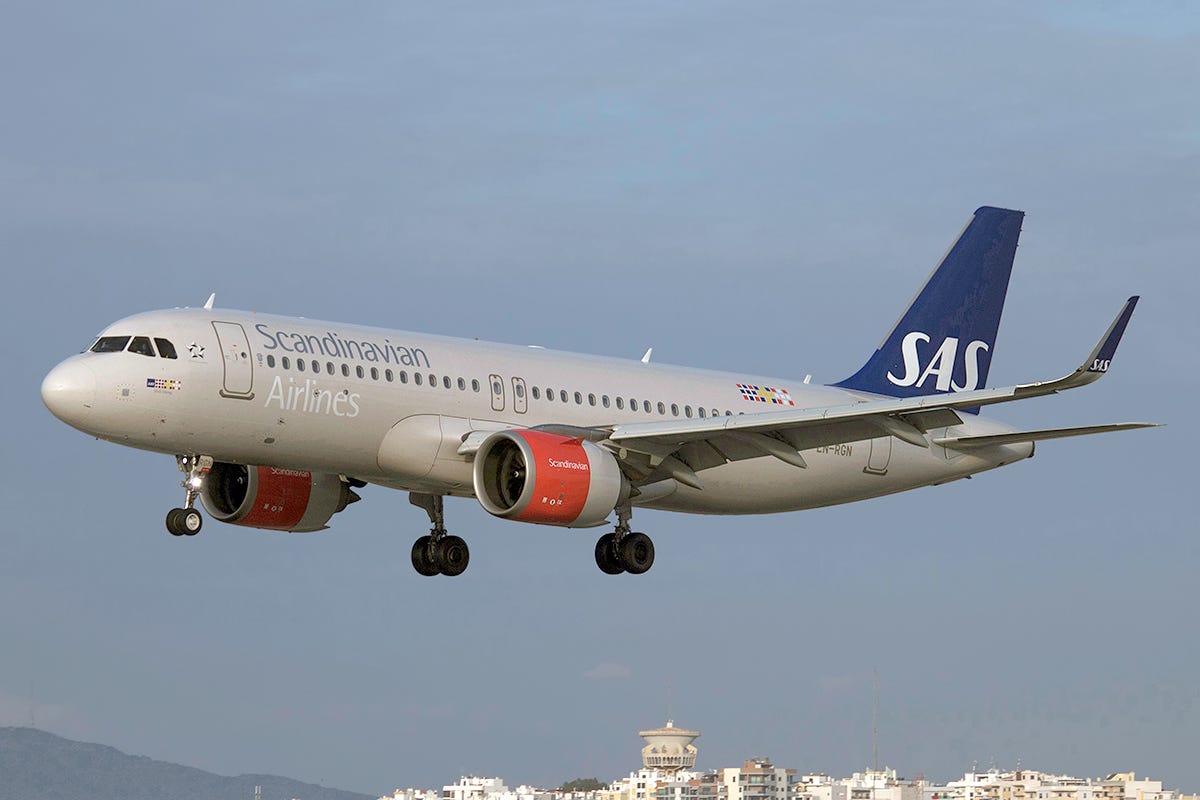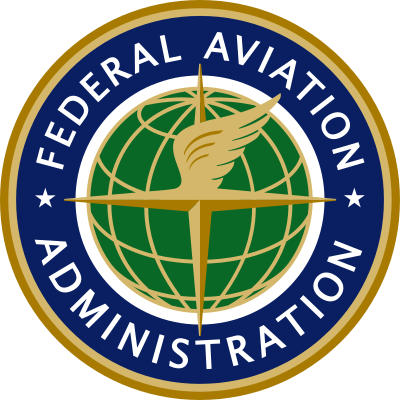Boeing Faces Setback in CEO Search as Larry Culp Declines Offer, and More

Dear readers,
Welcome to AviationOutlook newsletter, your one-stop source for the most relevant aviation & aerospace news briefs and industry insights.
Here are the important updates for today. Let’s get started.
Scandinavian Airlines SAS Expands US Network with Atlanta Route

Scandinavian Airlines (SAS) has inaugurated its new direct route between Copenhagen and Atlanta, marking a significant step in its transition to the SkyTeam alliance.
Key Points
- Route Details: The new route between Copenhagen Airport (CPH) and Hartsfield-Jackson Atlanta International Airport (ATL) began on June 17, 2024. The service will operate daily during the summer with an Airbus A330 and five times a week during the winter with an Airbus A350.
- Strategic Partnership: This route leverages SAS's partnership with Delta Air Lines, a major SkyTeam member, allowing passengers to connect seamlessly to numerous destinations across the Southern USA, Caribbean, and Latin America from Atlanta.
- Alliance Transition: SAS's move to the SkyTeam alliance will be official on September 1, 2024. This transition is facilitated by the investment from Air France-KLM, which holds a 19.9% stake in SAS.
- Enhanced Connectivity: The new route to Atlanta is expected to boost both passenger and cargo traffic, given Atlanta's status as the world's busiest airport and its proximity to the Port of Savannah, a major cargo hub.
- Customer Benefits: SAS EuroBonus members will continue to enjoy their current benefits with Star Alliance until August 31, 2024, and will transition to similar benefits with SkyTeam from September 1, 2024.
Why It Matters
This new route signifies SAS's strategic shift towards the SkyTeam alliance, enhancing its connectivity and service offerings.
This move is also a critical part of SAS's recovery plan post-bankruptcy, supported by the financial backing of Air France-KLM.
More Key Updates
- The European Commission has drafted a proposal to exempt long-haul flights from new emissions monitoring rules, limiting the requirement to flights within Europe until 2027. This move follows lobbying by international carriers and has caused a split in the aviation industry, with some low-cost European airlines advocating for the inclusion of all flights.
- CDB Aviation, an Irish subsidiary of China Development Bank Financial Leasing, has executed lease agreements for two Airbus A320neo aircraft with Azerbaijan Airlines, the national carrier of Azerbaijan. These new aircraft will support Azerbaijan Airlines' fleet renewal strategy and are scheduled for delivery in June and July 2025.
- Denmark's Maersk Air Cargo has retired one of its two corporate jets, a Gulfstream G600 business aircraft. This move comes as the cargo airline focuses on expanding its freighter fleet, recently ordering two Boeing 777 freighters expected to be delivered in the third quarter of 2024.
- LeaseWorks has announced that its Aeris MATCH CRM solution will power the commercial operations of Hanwha Aviation, a new engine and aircraft leasing platform launched by Hanwha Group. Designed specifically for aircraft leasing, Aeris MATCH will equip Hanwha Aviation's marketing and sales teams with data to drive better commercial outcomes as the company aims to manage over 1,000 assets within the next decade.
- Air China is expanding its presence in Italy by launching a new route connecting Chengdu with Milan Malpensa Airport, making it the airline's fourth service to the Italian city. The Chengdu-Milan flights will operate three times weekly from July 29 to October 25, 2024, complementing Air China's existing routes to Milan from Beijing, Shanghai, and Wenzhou.
- Turkish Airlines is reducing its operations to the former Yugoslav markets, removing flights from its network in July and August 2024. This move will impact the airline's services to destinations across Serbia, Bosnia and Herzegovina, Montenegro, and North Macedonia.
GE Aerospace CEO Larry Culp Rejects Boeing's CEO Offer

GE Aerospace's CEO Larry Culp has declined Boeing's offer to take over as CEO, a decision that comes amidst Boeing's ongoing safety and reputation challenges. This refusal leaves Boeing in a difficult position as it continues its search for a successor to current CEO Dave Calhoun, who is set to step down by the end of 2024.
Key Points
- Current CEO's Departure: Dave Calhoun, Boeing's current CEO, announced in March that he would step down by the end of 2024. His departure follows a series of controversies, including a recent mid-air incident involving an Alaska Airlines-operated Boeing 737 MAX 9 jet.
- Safety and Production Issues: The refusal comes at a time when Boeing is grappling with significant safety and production issues. The FAA has imposed restrictions on Boeing, preventing the company from expanding production of its 737 MAX jets until it addresses these concerns.
- Other Candidates: Besides Culp, David Gitlin, CEO of Carrier, has also declined the role. Stephanie Pope remains a candidate, but her background in finance may pose a challenge for her candidacy.
- Impact on Boeing: The search for a new CEO is critical for Boeing as it navigates through its current crisis. The company needs strong leadership to restore its reputation and address ongoing safety and production challenges.
What It Means
The refusal by top candidates like Culp and Gitlin suggests that potential leaders may be wary of the difficulties associated with the role.
For Boeing, this means an extended search for a CEO who can steer the company through its current troubles and restore confidence among stakeholders. But, there’s not much time remaining.
More Key Updates
- A new whistleblower, Boeing employee Sam Mohawk, alleges that the company tried to conceal broken or non-conforming parts from the FAA by moving them out of sight and falsifying records. Mohawk claims many of these questionable parts likely ended up being installed on 737 Max planes, raising serious safety concerns.
- A planned new aviation training center and hangar will be built at Danville Regional Airport to support future growth. The project includes a 12,532-square-foot hangar and training facility to be shared by Averett University and Danville Community College for aviation programs.
- Taiwan's Aerospace Industrial Development Corporation (AIDC) has signed a memorandum of understanding with U.S. firm AEVEX Aerospace to explore future cooperation in unmanned aerial systems and drones. This partnership aims to leverage AEVEX's expertise in drone design and manufacturing with AIDC's mass production capabilities, potentially establishing a drone supply chain base in Taiwan to support U.S. and Taiwanese security interests.
- The U.S. Air Force's F-22 Raptor fleet has reached a historic milestone of 500,000 flight hours, underscoring its enduring role in air superiority. This achievement highlights the aircraft's advanced capabilities and the dedication of the teams responsible for its operation and support.
FAA Seeks Industry Collaboration on AI for Aviation Safety

The Federal Aviation Administration (FAA) is seeking input from the aviation industry on how artificial intelligence (AI) capabilities can be leveraged to improve aviation safety within the National Airspace System (NAS).
Key Points
- The FAA released a Request for Information (RFI), asking for industry feedback on 11 different topics related to using AI for aviation safety analytics by July 2.
- The agency currently has internal capabilities like the Aviation Safety Information Analysis and Sharing (ASIAS) system for safety data analysis, but envisions a new AI-powered safety analytics system that can provide deeper insights from multiple data sources.
- Key challenges for integrating the new system include data sensitivity, variety, integration with existing infrastructure, and timely insights generation.
- The FAA aims to build the new system using commercially available AI analytics tools widely adopted by companies to improve operational safety and reduce errors.
What It Means
The FAA recognizes the potential of AI to enhance aviation safety by enabling more comprehensive and predictive analysis of safety data.
By tapping into industry expertise, the agency aims to develop an advanced AI-driven safety analytics platform that can better identify causal factors, predict high-risk operations, and ultimately prevent accidents and incidents in the National Airspace System.
More Key Updates
- Vertical Aerospace is nearing the completion of its second VX4 eVTOL prototype and expects to commence test flights soon. This advanced prototype is crucial for the company's goal of achieving service entry by the end of 2026.
- The New York Police Department (NYPD) has significantly increased its use of police helicopters, with flights soaring and spending reaching $12.4 million in 2023.
- Carlyle Aviation Partners is re-entering the asset-backed securities (ABS) market with a new bond sale after a two-year hiatus. This move signals a renewed interest in aircraft ABS following a period of market inactivity.





